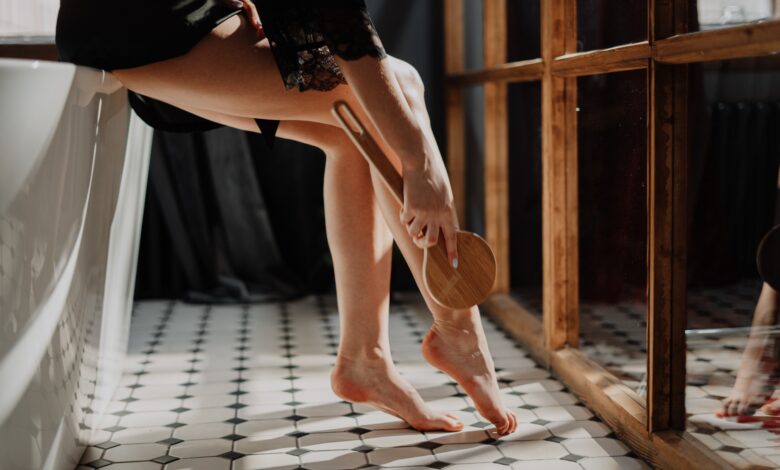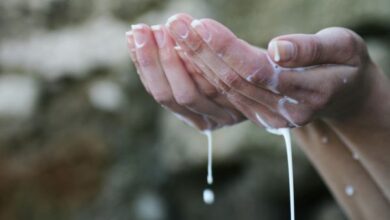Essential footcare tips to avoid monsoon infections

 Foot hygiene is essential throughout the year and it is all the more crucial during monsoon.
Foot hygiene is essential throughout the year and it is all the more crucial during monsoon.
Taking care of your feet during the rainy season can be quite tricky as they’re exposed to dirt, germs and disease more than any other body parts due to prolonged and constant exposure to standing water and rainwater during a downpour.
The rain, wetness and humidity in the air can cause smelly feet, sweaty feet, wet shoes, fungal infections, cracked toes, athlete foot and many other allergies.
The main problem during monsoon is high humidity and sweat. The feet are among the areas where germs accumulate and odour forms. The waste matter, which is secreted with sweat, has to be removed by daily washing, to eliminate odour and feel fresh and clean.
Make sure you wash your feet every time you return home with gentle warm water and mild soap to keep infections at bay. Dry the area between your toes and apply an anti-fungal powder daily.
Pay special attention to your feet while bathing. After washing them well, dry them thoroughly and apply talcum powder. Keep your feet dry and avoid wearing wet shoes. Several bacteria breed in humidity and wearing closed shoes makes it the perfect environment for pesky fungal infections during monsoon.
If you wear closed shoes, talcum powder can be sprinkled inside the shoes. However, in the hot season avoid high heels and covered footwear as slippers and open sandals are best because they allow maximum ventilation and help the perspiration evaporate quickly and make your feet dry. But open footwear also attracts dirt, and therefore, foot hygiene becomes all the more important. After a hot day, soak your feet in cold water, to which some salt has been added.
A foot problem called athlete’s foot develops more easily during hot and humid weather because it thrives on soggy skin. If neglected, it can become a stubborn problem, with an itchy condition. The athlete’s foot starts with a fungal infection. So, if there is dry scaling on the feet, especially between the toes, with some itching, consult a dermatologist without delay.
Anti-fungal preparations are effective in dealing with the problem in the initial stages. However, excessive moisture, caused by excessive sweating, tight shoes and humid weather can lead to bacterial activity and this worsens the condition. Avoid socks and wear open shoes. If socks are a must, wear cotton ones. Regularly cut short your foot nails during monsoon to prevent dust and dirt from getting collected under your nails to check fungal infections.
Use a foot scrubber and then apply a good moisturiser that works effectively on hard skin and helps keep the heels soft and smooth.
Here are some home remedies for monsoon footcare:
Foot soak: In one-fourth bucket of warm water, add half a cup of coarse salt and 10 drops of lemon, or orange essential oil (if you cannot get essential oil, use half cup of lemon or orange juice). If your feet tend to sweat a lot, use a few drops of tea tree oil, as it has germicidal properties. It helps to deal with bad odour. Soak the feet for 10 to 15 minutes.
Foot lotion: Mix three tablespoons of rose water, two tablespoons of lemon juice and one teaspoon of pure glycerine. Apply on your feet and leave on for half an hour.
Footcare for dryness: In one-fourth bucket of cold water, put two tablespoons of honey, one tablespoon of herbal shampoo, and one tablespoon of almond oil. Soak your feet in it for 20 minutes.
Cooling foot bath: Add rose water, lemon juice and a splash of eau de cologne in cold water and soak feet in it. This cools, cleans and removes odour.
Cooling massage oil: Take 100 ml olive oil and add 2 DROPS eucalyptus oil, 2 DROPS rosemary oil and 3 DROPS khus, or rose oil. Mix together and keep in an airtight glass jar. Use a little of this for foot massage. It cools and protects the skin and keeps it healthy.





